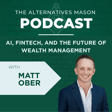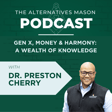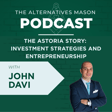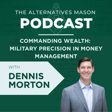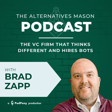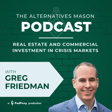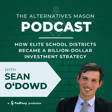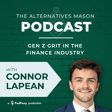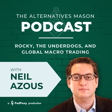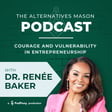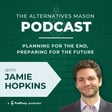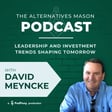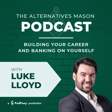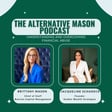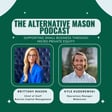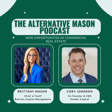
The Alternatives Mason: Building Alts Knowledge Brick by Brick | Episode 17 | The Psychology of Investing featuring Eben Burr
Welcome to The Alternatives Mason: Building Alts Knowledge Brick by Brick. Banrion Capital Management uses technology to help independent advisors scale and educate themselves on alternative investments. Since education is such a big piece of the Banrion mission and business, we are excited to kick off this series to dive into the nits and grits of the alternatives space. Episode 17 "The Psychology of Investing" features Eben Burr, President of Toews Asset Management.
As President of Toews Eben helps oversee the culture and direction of the firm which specializes in creating strategies designed with the clients financial and emotional wellbeing in mind. Eben advocates bringing behavioral psychology, introspection, and empathy into portfolio construction, planning, and communication.
Eben is a lecturer and coach of applied behavioral finance as part of the Toews Managing Investor Behavior™ program. He also facilitates communications between the investment management team at Toews and its partners and producing advisors. He holds the Series 7, 65, & 63 licenses. Prior to joining Toews, Eben was the principal of the Burr Tibbs Group, consulting for private equity and high net worth individuals in New York City real estate. Mr. Burr graduated from Oberlin College with a BA in history in 1995, attended architecture school in Paris at L’Ecole Bleue and received a Master’s Degree from Pratt in New York City in 1999. He is currently attending Kansas State University where he is pursuing a graduate certificate to become a Certified Financial Therapist, expanding on his experience to learn to train professionals who want to improve clients’ financial health by integrating relational, behavioral, cognitive and emotional elements with personal finance. He lives in Manhattan with his wife and son and lots of guitars.
Connect with Eben
Learn More About Toews Asset Management: Toews Corporation
Follow Toews on 𝕏: @toewscorp
Connect with Eben on 𝕏: @ebenburr
Connect with Eben on LinkedIn: Eben BurrLearn More About Banrion: Banrion Capital Management
Follow Brittany on 𝕏: @Brittany_Mason
Follow Banrion on 𝕏: @Banrion_Capital
Subscribe to our YouTube Channel: @BanrionCapital
Important Disclosures:
The opinions expressed on the “The Alternative Mason Podcast” are for general informational purposes only and are not intended to provide specific advice or recommendations for any individual or on any specific security.
It is only intended to provide education about the financial industry. To determine which investments may be appropriate for you, consult your financial advisor prior to investing. Any past performance discussed during this program is no guarantee of future results.
The guests featured on this program are participants on Banrion Capital Management’s platform. As such Banrion may receive payment for their participation as a platform partner.
Any indices referenced for comparison are unmanaged and cannot be invested into directly. As always please remember investing involves risk and possible loss of principal capital; please seek advice from a licensed professional.
Investments are not FDIC-insured, nor are they d
